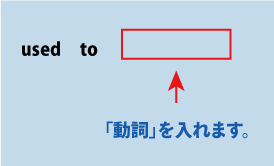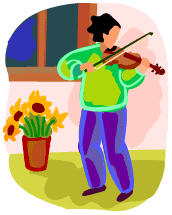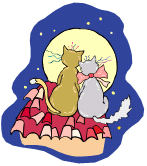
〇月△日 捨てられた猫




―Sherry and Pina were walking along the street in the campus. Two cats were walking toward the place where Bellini, Pina's keeper, would be.―
"Sherry, do you know the International Center?"
"I know. Overseas students often gather in that place, don't they?"
"Of course, that's right."
"I've heard the place is suitable for them to get information."
―While two cats were walking, a male cat was walking toward us.―
"Hey, Sherry, you are walking with a pretty girl today."
"Ah, Libre. This is Pina, my friend."
"I'll introduce him to Pina. He is a friend of mine, Libre."
"Hello, Libre," Pina greeted him.
"Hello. What are you doing today?"
"We are just on our way to the International Center," I answered him.
"Oh, see you later, Sherry."
"Ah, take care."
We started for the International Center.
"Libre is a Sherry's friend. Does he live in this neighborhood, too?"
"He is a friend of a long time back. He lives anywhere."
"Anywhere? What do you mean?"
"He used to be kept, but his keeper left him when he moved out."
"Well, I'm sad to hear that."
"Ah, I think so, too. His personality is good but he is rude a little."
"Rude a little?" Pina said with a smile.
The International Center came into sight.
"Sherry, do you know the International Center?"
"I know. Overseas students often gather in that place, don't they?"
"Of course, that's right."
"I've heard the place is suitable for them to get information."
―While two cats were walking, a male cat was walking toward us.―
"Hey, Sherry, you are walking with a pretty girl today."
"Ah, Libre. This is Pina, my friend."
"I'll introduce him to Pina. He is a friend of mine, Libre."
"Hello, Libre," Pina greeted him.
"Hello. What are you doing today?"
"We are just on our way to the International Center," I answered him.
"Oh, see you later, Sherry."
"Ah, take care."
We started for the International Center.
"Libre is a Sherry's friend. Does he live in this neighborhood, too?"
"He is a friend of a long time back. He lives anywhere."
"Anywhere? What do you mean?"
"He used to be kept, but his keeper left him when he moved out."
"Well, I'm sad to hear that."
"Ah, I think so, too. His personality is good but he is rude a little."
"Rude a little?" Pina said with a smile.
The International Center came into sight.

<今日の単語>
suitable ふさわしい;都合のよい
anywhere どこかに、どこにも
moved out 引っ越す
personality 性質、個性
rude 無作法な;失礼な
suitable ふさわしい;都合のよい
anywhere どこかに、どこにも
moved out 引っ越す
personality 性質、個性
rude 無作法な;失礼な

<今日の日本語訳>
―シェリーとピーナが大学の通りを歩いていた。2匹はピーナの主人、ベリーニのいるところに向かっていた。―
「シェリー、国際センターって知っている?」
「知っているよ。留学生がよく集まるところだよね。」
「そうそう、そのとおり。」
「留学生にとって情報交換にはうってつけの場所って聞いているよ。」
―2匹が歩いていると前から1匹の雄猫が歩いてきた。―
「やあ、シェリー、今日はかわいい子と歩いているんだね。」
「お、リバー。この子はピーナっていうんだ、友達だよ。」
「紹介するよ、ピーナ。友達のリバーだよ。」
「こんにちは、リバー」ピーナがあいさつをした。
「こんにちは。今日は何をしているの?」
「これから国際センターに行くところなんだよ。」僕が答えた。
「そうか、じゃあまた後で会おう、シェリー」
「そうだね、じゃあね。」
僕らは国際センターへまた歩いていった。
「リバーってシェリーの友達なんだね。やっぱり近くに住んでいるの?」
「長いつきあいになるね、リバーとは。リバーはどこにでも住んでいるよ。」
「どこにでも? どういうこと?」
「リバーは以前に人に飼われていたのだけれど、主人が引っ越すときに捨てられてしまったんだよ。」
「そうなんだ、かわいそうだね。」
「ああ、かわいそうなやつさ。性格もいいんだよ、ただしちょっとずうすうしいところが あるけどね。」
「ちょっとずうずうしいところがあるの」ピーナがほほえみながら答えた。
国際センターが見えてきた。
―シェリーとピーナが大学の通りを歩いていた。2匹はピーナの主人、ベリーニのいるところに向かっていた。―
「シェリー、国際センターって知っている?」
「知っているよ。留学生がよく集まるところだよね。」
「そうそう、そのとおり。」
「留学生にとって情報交換にはうってつけの場所って聞いているよ。」
―2匹が歩いていると前から1匹の雄猫が歩いてきた。―
「やあ、シェリー、今日はかわいい子と歩いているんだね。」
「お、リバー。この子はピーナっていうんだ、友達だよ。」
「紹介するよ、ピーナ。友達のリバーだよ。」
「こんにちは、リバー」ピーナがあいさつをした。
「こんにちは。今日は何をしているの?」
「これから国際センターに行くところなんだよ。」僕が答えた。
「そうか、じゃあまた後で会おう、シェリー」
「そうだね、じゃあね。」
僕らは国際センターへまた歩いていった。
「リバーってシェリーの友達なんだね。やっぱり近くに住んでいるの?」
「長いつきあいになるね、リバーとは。リバーはどこにでも住んでいるよ。」
「どこにでも? どういうこと?」
「リバーは以前に人に飼われていたのだけれど、主人が引っ越すときに捨てられてしまったんだよ。」
「そうなんだ、かわいそうだね。」
「ああ、かわいそうなやつさ。性格もいいんだよ、ただしちょっとずうすうしいところが あるけどね。」
「ちょっとずうずうしいところがあるの」ピーナがほほえみながら答えた。
国際センターが見えてきた。

<今日の日本語訳&英語訳>
―シェリーとピーナが大学の通りを歩いていた。2匹はピーナの主人、ベリーニのいるところに向かっていた。―
―Sherry and Pina were walking along the street in the campus. Two cats were walking toward the place where Bellini, Pina's keeper, would be.―
「シェリー、国際センターって知っている?」
"Sherry, do you know the International Center?"
「知っているよ。留学生がよく集まるところだよね。」
"I know. Overseas students often gather in that place, don't they?"
「そうそう、そのとおり。」
"Of course, that's right."
「留学生にとって情報交換にはうってつけの場所って聞いているよ。」
"I've heard the place is suitable for them to get information."
―2匹が歩いていると前から1匹の雄猫が歩いてきた。―
―While two cats were walking, a male cat was walking toward us.―
「やあ、シェリー、今日はかわいい子と歩いているんだね。」
"Hey, Sherry, you are walking with a pretty girl today."
「お、リバー。この子はピーナっていうんだ、友達だよ。」
"Ah, Libre. This is Pina, my friend."
「紹介するよ、ピーナ。友達のリバーだよ。」
"I'll introduce him to Pina. He is a friend of mine, Libre."
「こんにちは、リバー」ピーナがあいさつをした。
"Hello, Libre," Pina greeted him.
「こんにちは。今日は何をしているの?」
"Hello. What are you doing today?"
「これから国際センターに行くところなんだよ。」僕が答えた。
"We are just on our way to the International Center," I answered him.
「そうか、じゃあまた後で会おう、シェリー」
"Oh, see you later, Sherry."
「そうだね、じゃあね。」
"Ah, take care."
僕らは国際センターへまた歩いていった。
We started for the International Center.
「リバーってシェリーの友達なんだね。やっぱり近くに住んでいるの?」
"Libre is a Sherry's friend. Does he live in this neighborhood, too?"
「長いつきあいになるね、リバーとは。リバーはどこにでも住んでいるよ。」
"He is a friend of a long time back. He lives anywhere."
「どこにでも? どういうこと?」
"Anywhere? What do you mean?"
「リバーは以前に人に飼われていたのだけれど、主人が引っ越すときに捨てられてしまったんだよ。」
"He used to be kept, but his keeper left him when he moved out."
「そうなんだ、かわいそうだね。」
"Well, I'm sad to hear that."
「ああ、かわいそうなやつさ。性格もいいんだよ、ただしちょっとずうすうしいところが あるけどね。」
"Ah, I think so, too. His personality is good but he is rude a little."
「ちょっとずうずうしいところがあるの」ピーナがほほえみながら答えた。
"Rude a little?" Pina said with a smile.
国際センターが見えてきた。
The International Center came into sight.
―シェリーとピーナが大学の通りを歩いていた。2匹はピーナの主人、ベリーニのいるところに向かっていた。―
―Sherry and Pina were walking along the street in the campus. Two cats were walking toward the place where Bellini, Pina's keeper, would be.―
「シェリー、国際センターって知っている?」
"Sherry, do you know the International Center?"
「知っているよ。留学生がよく集まるところだよね。」
"I know. Overseas students often gather in that place, don't they?"
「そうそう、そのとおり。」
"Of course, that's right."
「留学生にとって情報交換にはうってつけの場所って聞いているよ。」
"I've heard the place is suitable for them to get information."
―2匹が歩いていると前から1匹の雄猫が歩いてきた。―
―While two cats were walking, a male cat was walking toward us.―
「やあ、シェリー、今日はかわいい子と歩いているんだね。」
"Hey, Sherry, you are walking with a pretty girl today."
「お、リバー。この子はピーナっていうんだ、友達だよ。」
"Ah, Libre. This is Pina, my friend."
「紹介するよ、ピーナ。友達のリバーだよ。」
"I'll introduce him to Pina. He is a friend of mine, Libre."
「こんにちは、リバー」ピーナがあいさつをした。
"Hello, Libre," Pina greeted him.
「こんにちは。今日は何をしているの?」
"Hello. What are you doing today?"
「これから国際センターに行くところなんだよ。」僕が答えた。
"We are just on our way to the International Center," I answered him.
「そうか、じゃあまた後で会おう、シェリー」
"Oh, see you later, Sherry."
「そうだね、じゃあね。」
"Ah, take care."
僕らは国際センターへまた歩いていった。
We started for the International Center.
「リバーってシェリーの友達なんだね。やっぱり近くに住んでいるの?」
"Libre is a Sherry's friend. Does he live in this neighborhood, too?"
「長いつきあいになるね、リバーとは。リバーはどこにでも住んでいるよ。」
"He is a friend of a long time back. He lives anywhere."
「どこにでも? どういうこと?」
"Anywhere? What do you mean?"
「リバーは以前に人に飼われていたのだけれど、主人が引っ越すときに捨てられてしまったんだよ。」
"He used to be kept, but his keeper left him when he moved out."
「そうなんだ、かわいそうだね。」
"Well, I'm sad to hear that."
「ああ、かわいそうなやつさ。性格もいいんだよ、ただしちょっとずうすうしいところが あるけどね。」
"Ah, I think so, too. His personality is good but he is rude a little."
「ちょっとずうずうしいところがあるの」ピーナがほほえみながら答えた。
"Rude a little?" Pina said with a smile.
国際センターが見えてきた。
The International Center came into sight.
ここから今日のポイントになります。


★ポイント1
"We are just on our way to the International Center," I answered him.
「これから国際センターに行くところなんだよ。」僕が答えた。
be on one's way to ~ で、「~へ行く途中」という意味で使うことができます。
「~」には「場所」が置かれます。

I'm on my way to school.
(学校へ行く途中です。)
I'm on my way home.
(帰る途中です。)
home には to が置かれません。

★ポイント2
"He used to be kept, but his keeper left him when he moved out."
「リバーは以前に人に飼われていたのだけれど、主人が引っ越すときに捨てられてしまったんだよ。」
used to ~ で、「以前は~だった。」や「以前は~したものだ。」というように、過去の状態や習慣をあらわすことができます。
used to の後には動詞の原形がおかれます。

I used to play the violin.
(私は以前ヴァイオリンを弾いていました。)
I used to play soccer.
(私はかつてサッカーをしていました。)

Sherry's Diary の練習問題
